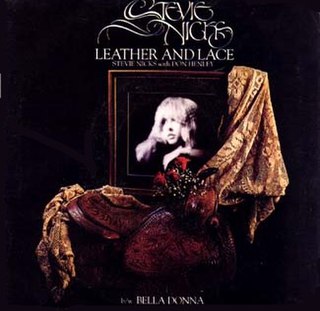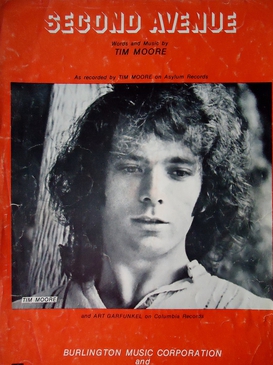
"Ain't Nothing Like the Real Thing" is a 1968 single released by American R&B/soul duo Marvin Gaye and Tammi Terrell, on the Tamla label in 1968. The B-side of the single is "Little Ole Boy, Little Ole Girl" from the duo's United LP. The first release off the duo's second album: You're All I Need, the song—written and produced by regular Gaye/Terrell collaborators Ashford & Simpson—became a hit within weeks of release eventually peaking at number eight on the US Billboard Hot 100 and number one on the Hot Soul Singles chart, the first of the duo's two number-one R&B hits. In the UK "Ain't Nothing Like the Real Thing" reached number 34.

"One Tin Soldier" is a 1960s counterculture era anti-war song written by Dennis Lambert and Brian Potter. Canadian pop group The Original Caste first recorded it in 1969 for both the TA label and its parent Bell label.

"Oh Girl" is a song written by Eugene Record and recorded by American soul vocal group the Chi-Lites, with Record on vocals and also producing. It was released as a single on Brunswick Records in 1972. Included on the group's 1972 album A Lonely Man, "Oh Girl" centers on a relationship on the verge of break-up.

"Tell Me a Lie" is a song composed by Mickey Buckins and Barbara Wyrick. Originally recorded by Lynn Anderson for her 1974 What a Man My Man Is album, it was released later that same year as a single by Sami Jo Cole, who took it to number 21 on both of the major U.S. pop charts. It also charted in Canada (#17). Cole's version was also an Adult Contemporary hit, reaching number 14 in the U.S. and number 27 in Canada.

"More Love" is a 1967 hit single recorded by the American soul group The Miracles for Motown Records' Tamla label. The single, included on the group's 1967 album Make It Happen, later reissued in 1970 as The Tears of a Clown. Kim Carnes's 1980 cover of the song reached the Top 10 of Billboard's Adult Contemporary and Hot 100 charts.

"Lonely Night (Angel Face)" is a song written by Neil Sedaka. The song was first recorded by Sedaka and appeared as a track on his 1975 studio album, The Hungry Years. The following year the song was made popular when covered by the pop music duo Captain & Tennille, who took their version to number 3 on the Billboard Hot 100.

"Love Ballad" is a song by R&B/Funk band L.T.D. Jeffrey Osborne is the lead singer.

"(There's) No Gettin' Over Me" is a song written by Walt Aldridge and Tom Brasfield, and recorded by American country music singer Ronnie Milsap. It was released in June 1981 as the first single from the album There's No Gettin' Over Me. Known by many fans by its less grammatically correct title "There Ain't No Gettin' Over Me" — the song's official title appears nowhere in the lyrics — the song became one of Milsap's biggest country hits and his only top 10 pop hit during his recording career.

"Leather and Lace" is a song performed by American singers Stevie Nicks and Don Henley. It was released on October 6, 1981, as the second single from Nicks' solo debut studio album Bella Donna (1981).

"Cupid" is a song by American singer Sam Cooke, released on May 16, 1961. It charted at number 17 on the Billboard Hot 100 and number 20 on the Hot R&B Sides chart; the track performed best in the United Kingdom, peaking at number seven on the UK Singles Chart. The song is featured on Cooke's greatest hits album, The Best of Sam Cooke (1962). Cooke's producers had asked him to write a song for a girl they had seen on a Perry Como TV show—but once they heard her sing, they kept "Cupid" for Cooke himself.

"It's a Miracle" is a 1975 single by Barry Manilow and was the second release from his album, Barry Manilow II. "It's a Miracle" went to number twelve on the U.S. Billboard Hot 100 and was Manilow's second number one on the U.S. Easy Listening chart, spending one week at number one in April 1975. The single also peaked at number fifteen on the disco/dance chart, and was the first of four entries on the chart. "It's a Miracle" was followed by "Could It Be Magic".

"Do I Love You" is a song co-written and recorded by Paul Anka, from his 1972 eponymous LP. Released as an advance single in late 1971, "Do I Love You" reached number 14 on the Easy Listening Singles charts of both the U.S. and Canada, number 16 on the Canadian Pop chart, and was a modest hit on the U.S. Hot 100 as well. As with the earlier "My Way", it was adapted from a French-language song popularized by Claude François, and Anka composed the English lyrics.

"How You Gonna See Me Now" is a song written by Alice Cooper, Bernie Taupin, and Dick Wagner, performed by Cooper and produced by David Foster. It was released on Cooper’s album, From the Inside.

"Gypsy Woman" is a 1961 rhythm and blues song written by Curtis Mayfield and recorded by his group the Impressions. The group's first single following the departure of lead singer Jerry Butler, it reached No. 2 on the US Billboard R&B chart, No. 20 on the Billboard Hot 100 and number 17 on the Cash Box chart. It also appeared on the group's 1963 eponymous debut album. Joe Bataan (1967), Brian Hyland (1970), Bobby Womack (1985), Steve Marriott (1989), and Santana (1990) covered this song.

"Lost Without Your Love" is a song written and composed by David Gates, and originally recorded by the soft rock group Bread, of which Gates was the leader and primary music producer. It is the title track of Bread's last album which was released in 1976, and the song became their final top 10 hit.

"Starting All Over Again" is a 1972 song by the cousin duo Mel & Tim. It is the title track of their second LP. It was their second and final top 40 hit in the U.S. and Canada. It peaked at number 19 on the Billboard Hot 100, spending five months on the American charts. On the R&B chart, the song peaked at number 4.

“Second Avenue” is a song written by American singer-songwriter Tim Moore. The song was released in 1974 as Moore's second single from his debut LP, concurrently with a version by Art Garfunkel, which received greater notice.

"Hooked on You" is a song written and composed by David Gates, and originally recorded by the soft rock group Bread, of which Gates was the leader and primary music producer. It was the second single released from Bread's 1977 album Lost Without Your Love, and became their final charting hit.

"The Drum" is a song recorded by Bobby Sherman from his Portrait Of Bobby LP. It was released as a single in the spring of 1971, the second of two from the album. The song was written by Alan O'Day, his first of five Top 40 chart credits.

"Don't Throw It All Away" is a song written by British musician Gary Benson and first released by the Shadows on their 1975 album Specs Appeal. Benson released his version as a single later the same year, which reached number 20 on the UK Singles Chart in the fall of 1975.




















